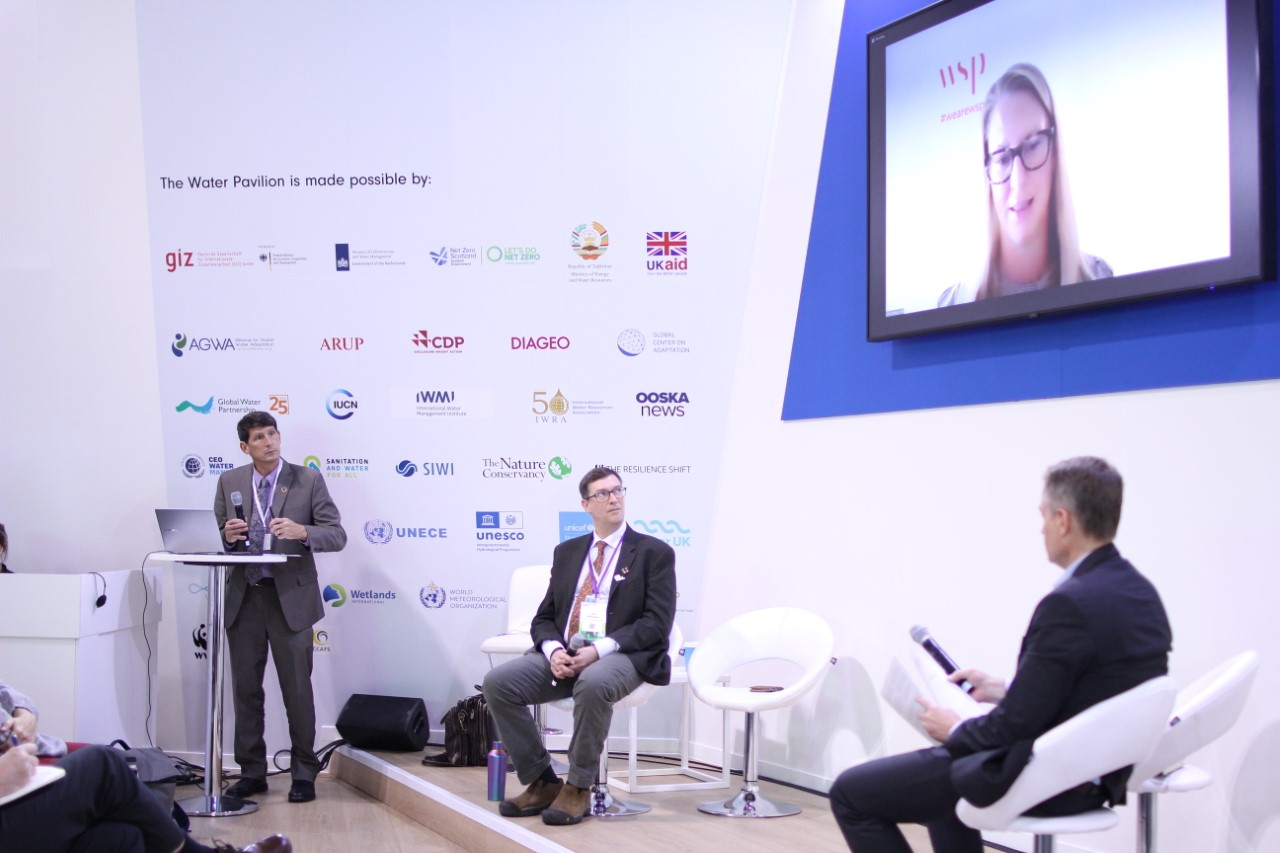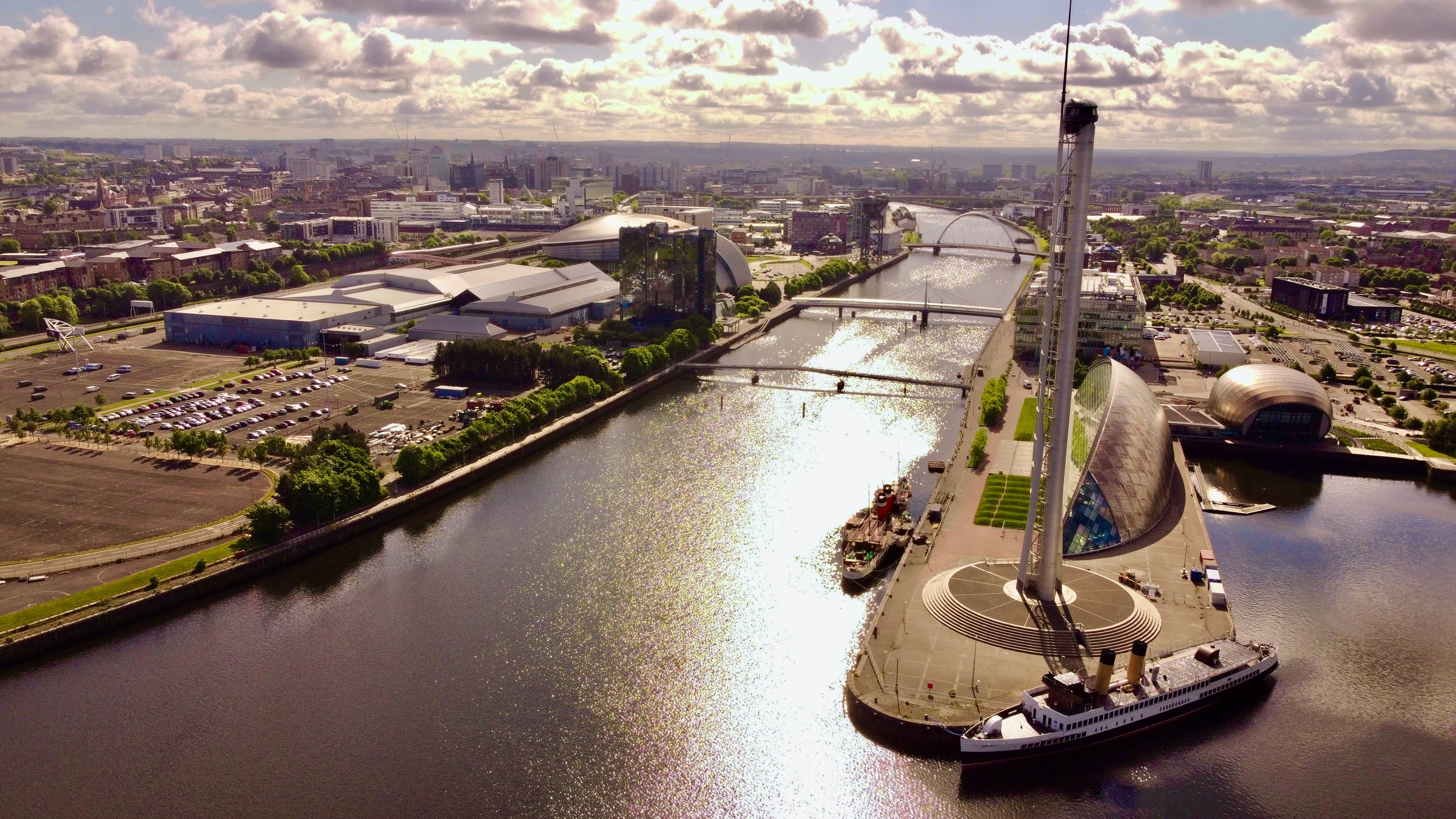Jason Morrison
President, Pacific Institute, & Head, CEO Water Mandate

The 26th UN Climate Change Conference (COP26) in Glasgow marked a welcome change in the way water is included in global climate dialogue. Now in the rearview mirror, it’s clear the water agenda received significantly more attention than during previous COPs, and that resilience and adaptation are gaining powerful traction alongside climate mitigation.
In line with the Pacific Institute’s 2030 goal to catalyze the transformation to water resilience, the Institute was a major player at COP26, convening several sessions at the first-ever Water for Climate Pavilion. In advance of the conference, the Pacific Institute also published a Water Resilience Issue Brief to extrapolate on the critical need for building water resilience in the face of climate change. This brief has received significant interest, including this front-page piece in the Los Angeles Times and this “Resilience is More than a Buzzword” interview.
During the COP26 conference itself, on Energy Day, the Pacific Institute co-convened the session “Water Pathways to Reduce Energy Use and GHG Emissions,” highlighting new research on the water-energy-climate nexus. Director of Research Heather Cooley outlined how climate change places pressure on water resources and how water decisions impact energy usage and greenhouse gas (GHG) emissions. Watch the session here.
Corporate water stewardship’s role

The corporate sector’s role in building water resilience was also front and center at COP26. The Pacific Institute advanced this work at the conference through its role as the Co-Secretariat of the UN Global Compact CEO Water Mandate. The CEO Water Mandate was a Core Partner of the Water for Climate Pavilion and an active participant during a range of COP26 sessions, highlighting corporate action and innovative thinking on water resilience with new climate-focused audiences.
- During Finance Day, the most watched of the Water for Climate Pavilion, the CEO Water Mandate, in collaboration with the Alliance for Water Stewardship (AWS) and the German Agency for International Cooperation (GIZ), launched the Water Stewardship Acceleration (WaSA) Forum. The WaSA Forum aims to foster policy, finance, and corporate dialogue towards water stewardship acceleration. Watch the session here.
- During Nature Day, along with partners, the CEO Water Mandate presented work on nature-based solutions (NBS). This presentation specifically focused on best practices to quantify NBS co-benefits, strengthening the investment case to put real funding for nature on the table. Watch the session here.
- Later, on Climate-Resilient WASH Day, the CEO Water Mandate hosted a session with partner WaterAid focused on the Mandate’s WASH4Work consortium. This session highlighted how companies are increasingly recognizing how their actions on water access, sanitation, and hygiene (WASH) need to be future proofed in the context of climate change. Watch the session here.
- Finally, on Resilience and Adaptation Day, the CEO Water Mandate highlighted the Water Resilience Assessment Framework, a tool that helps stakeholders jointly understand the climate resilience of the water systems where they operate. Watch the session here.
Corporate sector leadership from the Water Resilience Coalition
The CEO Water Mandate’s collective action initiative, the Water Resilience Coalition (WRC), was also a visible presence at the climate conference. Since its 2020 launch, the WRC has gained notable traction, increasing membership from 11 to 27 companies. Since its inception, the WRC has also introduced the Net Positive Water Impact (NPWI) framework, a new standardized approach to quantify water positivity consistently across companies at global scale. WRC member companies commit to achieving NPWI based on three specific dimensions—water availability, quality, and access—in water-stressed basins where they operate by 2050 through a combination of investments in their own operations and through collective action.
During COP26, the WRC welcomed two new companies—LG and Braskem—to its membership, while also formalizing partnerships with UNICEF and the European Space Agency (ESA). CEOs of WRC leadership companies also united for the Coalition’s second CEO Circle meeting. During this high-level, direction-setting gathering, CEOs agreed on the WRC’s 2030 Roadmap for Collective Action, including specific 2030 goals:
- Increase WRC corporate membership to 150 companies, representing one-third of global corporate water usage.
- Expand co-funded collective action projects from 11 basins today to at least 100 water-stressed basins around the world. Collective action projects unite business, NGOs, and the public sector to build water resilience through nature-based solutions, regenerative agriculture, wastewater recycling, water reuse, and other climate-positive approaches.
- Achieve NPWI in at least 100 basins that support water security for 3 billion people.
- Provide resilient water and sanitation (WASH) to at least 100 million people.
The post-COP26 way forward
COP26 marked an important milestone in advancing the call for water resilience as part of climate adaptation. However, COP26 is not the finish line. It is, rather, an inflection point.
With each passing month, intensifying floods and droughts tangibly illustrate how climate change manifests itself most directly through the water cycle, with damaging impacts to people and nature. Significant and swift action is required to ensure water resilience is fully integrated into the highest levels of climate policy discourse—and ultimately achieved.
During the year ahead looking toward 2022’s COP27 in Egypt, the Pacific Institute will continue to advance the transformation to water resilience—through both public policy advocacy and its leadership role in corporate water stewardship.


